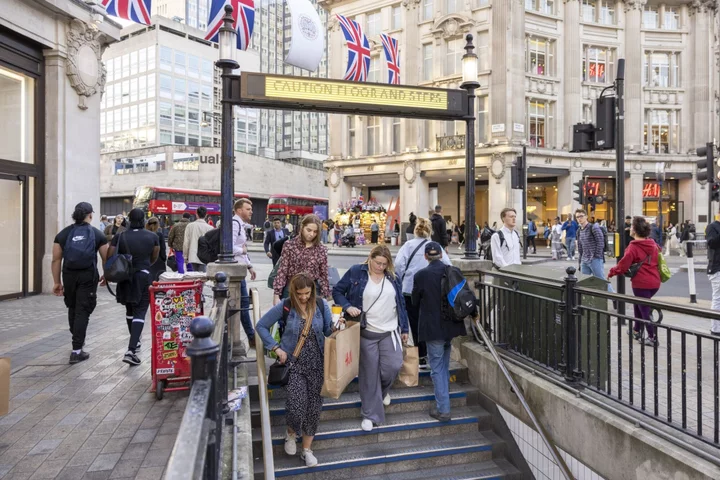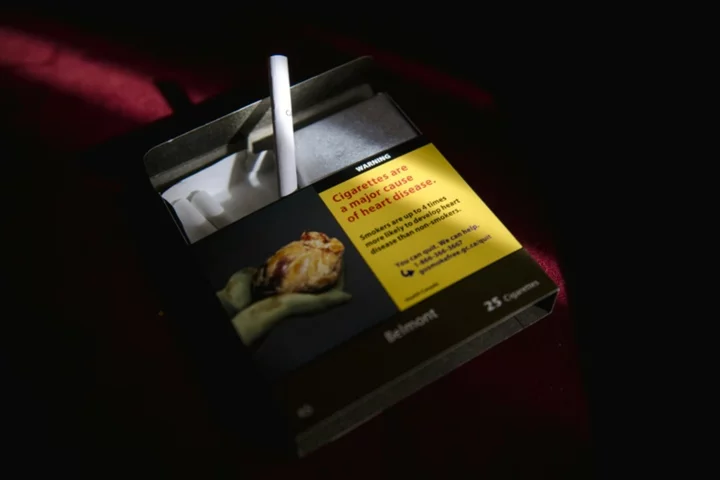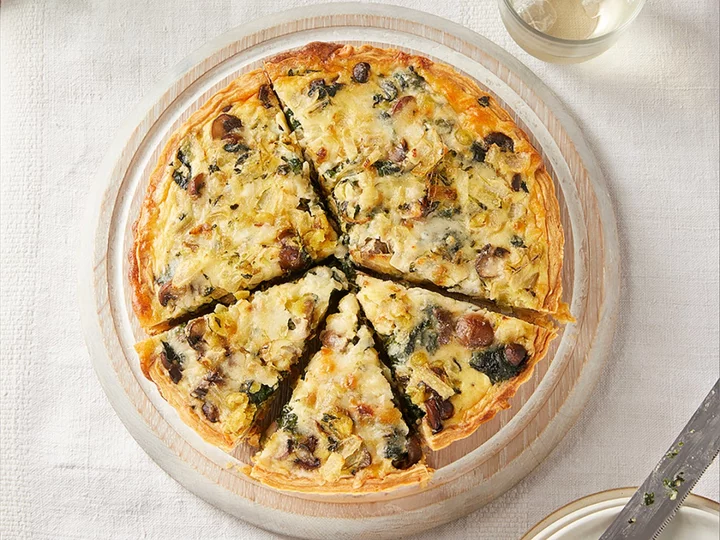
The Best Short Throw and Ultra Short Throw Projectors for 2023
If you hear "throw" and the first thing you think of is a ballplayer, you
2023-11-23 06:56

CyberLink PowerDirector 365 Review
CyberLink's PowerDirector 365 video editing software bridges the gap between professional editing power and consumer
2023-11-10 07:21

What to stream this weekend: 'Monkey King,' Stand Up to Cancer, 'No Hard Feelings,' Madden NFL 24
This week’s new entertainment releases include albums from Irish singer-songwriter Hozier and Idina Menzel, the animated “The Monkey King” from Stephen Chow and Jennifer Lawrence’s R-rated comedy “No Hard Feelings.”
2023-08-19 00:53

Let Go & Start Fresh: The Fall Equinox Is Coming
The autumnal equinox in the Northern Hemisphere occurs on September 23 at 2:50 AM ET, which marks the end of one season and the beginning of another across the world. Equinoxes happen twice a year, during the initiation of fall and spring. Simply put, this shift commences when the Sun crosses the Earth’s equator. It is the time in which the North and South regions of Earth experience equal daylight and nighttime hours at the same moment in time. When the Fall Equinox commences in the Northern Hemisphere, the Spring Equinox takes place in the Southern Hemisphere (and vice versa).
2023-09-16 02:49

UK Retail Sales Rise Unexpectedly to Underline Resilient Economy
UK retail sales rose unexpectedly in May, indicating strength in the economy that the Bank of England fears
2023-06-23 14:16

Each cigarette in Canada now comes with warning label
Each cigarette sold in Canada effective Tuesday now comes with an individual health warning that "cigarettes cause impotence" and cancer, and that there is...
2023-08-02 07:26

Companies are finding it's not so simple to leave Russia. Some are quietly staying put
When Russia invaded Ukraine, companies were quick to respond, some announcing they would get out of Russia immediately
2023-05-25 23:52

Save Big on Apple AirPods Now Before They’re All Gone
Black Friday is finally here, and that includes significant discounts on fan-favorite AirPods. iPhone users
2023-11-24 20:50

How to make spinach and mushroom quiche
It’s often said that quiche is old-fashioned, but there is nothing old-fashioned about this one,” says former Great British Bake Off contestant Hermine Dossou. “It’s a crumbly, super-short, melt-in-your-mouth pastry filled with buttery spinach and creamy custard. “Gruyère is the perfect cheese for quiche and a little goes a long way, but if it’s not available, you can substitute with Emmental, Comté, Jarlsberg or Beaufort.” Spinach and mushroom quiche Serves: 8 Ingredients: For the shortcrust pastry: 210g plain flour (gf plus 1 tsp xanthan gum), plus extra for dusting 130g cold butter 1 large egg (55g) 1 tbsp cold water ¼ tsp salt For the custard: 15g butterLeaves from 3 thyme sprigs 1 small yellow onion (about 50g), finely chopped 2 eggs 120g double cream 1 chicken or vegetable stock cube, crumbled 1 tsp Dijon mustard ¼ tsp salt Pinch of black pepper For the filling: 30g butter 250g mushrooms, sliced ½ tsp garlic powder A pinch of salt 250g baby spinach leaves 80g grated Gruyére cheese Method: 1. To make the shortcrust pastry, in a large bowl rub the flour and butter together with your fingertips until sandy in texture. (You can use a food processor to speed up this process.) Add the egg, water and salt and bring together into a dough without overworking it. Wrap in cling film and chill in the fridge – you always want to work with cold pastry as it’s much easier to handle. 2. When ready, lightly flour a work surface and roll out the dough to a circle about 30cm in diameter and 3mm thick. Use your rolling pin to lift it up and lay it over a 23cm tart tin, so there is an overhang of pastry at the top. Using a straight-sided glass, ease the pastry into the corners of the tin by rolling the glass around the edge in circular motion. Chill for 20 minutes. 3. Preheat your oven at 200C/180C fan/400F/Gas 6. Line your chilled pastry case with parchment paper, fill it with baking beans or cheap pulses, and blind bake for 15 minutes. Lift out the baking beans and parchment paper and continue baking for a further 10 minutes to dry out the base. 4. Meanwhile, make the custard. Put the butter, thyme and onion in a small frying pan over medium heat and cook until the onion is soft and transparent. Set aside to cool slightly. In a medium bowl, whisk together the eggs, cream, stock cube, mustard, salt and pepper, adding the cooked onions. Set aside. 5. Prepare the filling using the same pan you used to cook the onions. Heat the butter, add the mushrooms, garlic and salt, and cook over a high heat until the mushrooms are soft and most of the water has evaporated. Add the spinach and cook until it has wilted and the mixture is thick. 6. Tip the spinach mixture into the pre-baked tart case and spread it around evenly. Sprinkle over the grated cheese, then pour in the custard, making sure it’s distributed evenly. Bake at 200C/180C fan/400F/Gas 6 for 20–25 minutes, or until the middle of the quiche looks set and the top is slightly golden. Enjoy warm. ‘The Thrifty Baker’ by Hermine Dossou (White Lion, £18.99).
2023-09-06 13:50

DIG Launches Easy and Affordable Meal Solutions for Dinner
NEW YORK--(BUSINESS WIRE)--Jul 18, 2023--
2023-07-18 19:49

Brazilian Indigenous women use fashion to showcase their claim to rights and the demarcation of land
Indigenous women in Brazil’s capital Brasilia showcased their creations during a fashion event as part of the Third March of Indigenous Women to claim women’s rights and the demarcation of Indigenous lands
2023-09-14 00:47

After 25 years, the gang's back together for ‘The Full Monty’ TV mini series
Mashable film editor Kristy Puchko speaks to the cast of The Full Monty TV mini
2023-06-14 21:49
You Might Like...

Death of Nahel brings old problems in France's suburbs back to the surface

Anycubic Kobra 2 Review

Japan Monthly Tourism Numbers Return to Pre-Covid Level

Mark Wahlberg turns 52! Actor has been sober for 104 days as he's 'past the halfway point'

Today’s beloved host Al Roker abruptly leaves mid-show as Craig Melvin reveals reason behind absence

California condors confront bird flu in flight from extinction

11 ways to dip into Mediterranean inspired decor

Cyprus cats to get Covid meds
